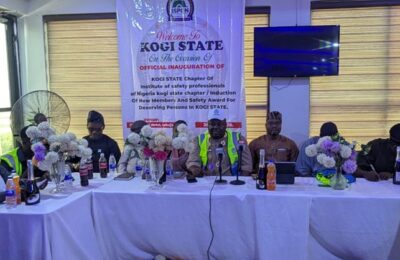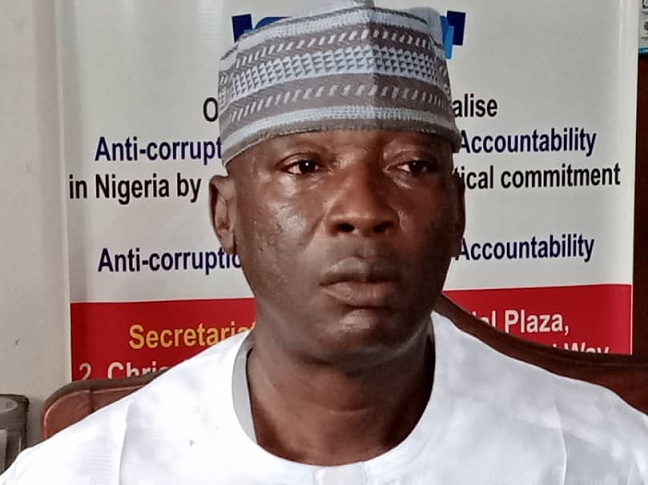The Igala nation stands not at a mere moment of uncertainty, but at the edge of existential reckoning. Once a formidable pillar in Nigeria’s socio-political matrix, it has been eroded by factionalism, debilitated by self-inflicted wounds, and reduced to a shadow of its former coherence. Where thunderous pronouncements once rolled from Idah’s throne room, there now echoes silence—laced with nostalgia and strategic paralysis. While other nationalities have marshalled unity to consolidate power, the Igala people remain ensnared in petty hostilities, generational distrust, and a tragic failure to evolve. Pan-Igalanism, therefore, is not sentimental idealism—it is an urgent ideological framework to restore cohesion, revive moral architecture, and recalibrate a people sliding into collective anonymity.
Pan-Igalanism is a radical ideological mandate to dismantle the walls of division among Igala clans, creeds, and social classes. It is a disciplined movement forged in the fires of identity, cultural revival, political awakening, and strategic economic unity. It demands that every true Igala son and daughter abandon self-serving ambitions and rise as custodians of a common destiny—fighting not for position, but for the preservation, restoration, and resurgence of the Igala nation.
There is an Igala maxim with timeless sting: “I chewn k’Oma ma je kuma k’ola ofili n, Odo a’kola”—when a child rejects wise counsel and mocks ancestral warning, reality will summon him at the river’s edge. It is not merely proverbial; it is prophetic. The Igala nation, blinded by internal sabotage and distracted by insular rivalries, has drifted dangerously. We have embraced transactional politics over transformational thinking. We have mistaken ego for vision and traded ancestral honour for ephemeral gains. As an elder in Ankpa once reflected, “The strength of ants lies in their collective will, not their size.” What afflicts the Igala people is not intellectual poverty, but disunity of purpose. Pan-Igalanism demands ideological realignment—putting shared future above personal ambition.
The first imperative is a robust political re-education. Electoral behaviour must be rescued from its current state of emotional loyalty and returned to issue-based rationality. Citizens must be taught to interrogate manifestos, critique political actors, and reclaim their power as sovereign decision-makers. Politics must be demystified and de-tribalised. Institutions of learning, religious centres, and traditional forums must become civic training grounds. Claude Ake’s warning rings true: “A people devoid of political consciousness will always be instruments in others’ designs.” Igala youth or qualified voters must be sharpened into thinkers—not just voters—for in a democratic society, ignorance is weaponised by the cunning.
Second, cultural revalorisation is indispensable. The Igala cultural complex must be deployed not merely as nostalgia but as moral compass and developmental fuel. Traditions like the fear of God or gods, once potent tools of accountability and communal order, must be reimagined for today’s moral landscape. Culture must evolve from performative rituals into pragmatic systems of discipline, creativity, and governance. As Dr. Paul Enenche aptly warned, “A culture lost is a people untethered.” A nation with no memory cannot chart a future. Pan-Igalanism insists that our customs are not burdens—they are blueprints.
Third, strategic economic synergy among the Igala elite is no longer optional; it is existential. Diaspora professionals, corporate executives, intellectuals, and clergy must consolidate resources into nation-building ventures and not lip services as witnessed in the past. From agro-industrial zones in Dekina to scholarship foundations in Ankpa, from digital literacy academies in Anyigba to healthcare partnerships in Idah—these are not utopias, but imperatives. Prophet T.B. Joshua’s maxim bears repeating: “Your true wealth is in how many destinies you repair.” The Igala elite must rise from ceremonial visibility to concrete impact.
Fourth, the bridging of generational rifts must become a core doctrine. Elders must transition from dominance to guidance, while youth must temper rebellion with wisdom. Mutual suspicion must yield to mutual mentorship. When experience allies with innovation, nations leap forward. As Apostle Ayo Babalola sternly declared, “A generation without guidance is a forest ablaze without firebreaks.” Pan-Igalanism is the architecture through which fathers and sons may build a shared inheritance.
This ideological project is not a call to ethnic chauvinism or romantic nationalism. It is a reclamation of moral clarity and strategic identity. Pan-Igalanism is the antidote to intellectual atrophy, political fragmentation, and cultural amnesia. It declares that unity is strength, but coordinated purpose is power. Let future historians write that when the Igala nation was almost forgotten, its people chose not despair but dignity; not victimhood but vision; not silence, but a sovereign resurgence rooted in wisdom, sacrifice, and strategic coherence.
– Inah Boniface Ocholi writes from Ayah – Igalamela/Odolu LGA, Kogi state.
08152094428 (SMS Only)




